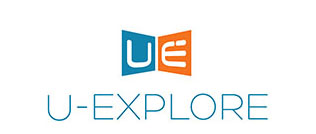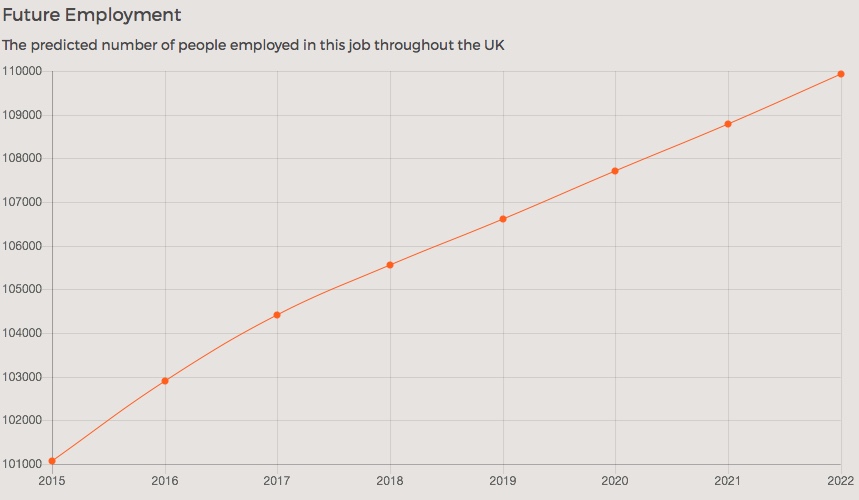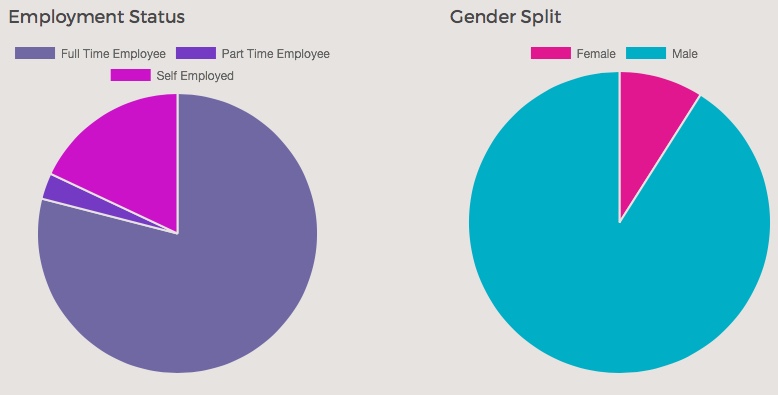Building a Careers Ecosystem: startprofile.com

“Every year the country spends billions of pounds on education but the system remains poorly integrated with the world of work. As the range of jobs and the complexity of careers increases, the need for better integration becomes ever more acute. At the heart of this problem are generations of young people leaving schools, colleges and universities. If they are well prepared for their futures they have the potential to make a major impact on the economic and social prosperity of their community and country.”
About U-Explore
U-Explore provides solutions where the priority is for a young person to make an informed decision about their future. Their approach combines technology and the practical support schools and colleges need to provide students with access to effective and relevant careers guidance to better inform their future study and work choices.
Since 2008, U-Explore has established a network of over 3,000 schools and colleges using their products and services and has a strong track record of delivering contracts for local government ranging from educational technology products to targeted intervention services for young people.
What is startprofile.com?
Start (startprofile.com) is an innovative and easy-to-use careers guidance software package helping young people make better and more informed choices about their career path. Ideal for schools and colleges, students and parents, Start is free to use.
Developed by U-Explore, Start is designed to empower schools and colleges to deliver high quality, independent and impartial career guidance to students. It provides career and labour market information combined with personalised diagnostic tools which support career decision-making. Crucially, it delivers career support for individuals whilst integrating with the wider career support that schools and colleges offer.
For students, Start offers personalised information and opportunities which take account of who they are, where they start from and where they want to go. It builds on longstanding career assessment practices by building a personal profile of work preferences, qualities, skills and interests and using this to match users to jobs and learning opportunities based on their suitability and how available those jobs are in the labour market. The software not only provides factual information from LMI for All and other high quality sources, but also draws on multi-media qualitative information.
For schools and colleges, Start provides much needed resources, support and structure for the delivery of career guidance. It is also designed to help schools to meet their statutory duties, satisfy Ofsted and provide what the Gatsby Charitable Foundation describes as ‘good career guidance’.
At a systemic level Start offers a sustainable approach for the provision of career support. As it continues to grow, it will create a careers ecosystem within which schools, colleges, universities and employers are all able to interact more easily and to mutual benefit.
Since launching in January 2016, over 150,000 students and 4,500 teachers and careers guidance professionals have registered to use Start.
How does Start use LMI for All?
LMI for All feeds labour market information into Start, enhancing over 1,600 job profiles which allow students to explore details such as occupational descriptions, salary levels, education and training routes into the occupation and current vacancies. Alongside the LMI for All data, Start integrates post-16 and 18 course and provider information from the Education and Skills Funding Agency, Unistats and the Apprenticeship Service; as well as media and content from partners such as Indeed and icould.

Start is structured around four elements that create the user journey: About Me, Explore Jobs, What to Study and Where to Learn. Based on these elements, the following LMI for All datasets are explored:

Pay
Hours- Employment levels and forecasts
- Gender profile of workforce
- Employment status of workforce
- Hard to fill vacancies
Start presents a detailed view of over 1,600 job roles including what each job entails, the skills and qualifications required for the role plus other information such as live vacancies and related content to explore. Utilising the data sets from LMI for All allows for localised data points for each job role to be presented to the user, including average and starting pay, working hours, employment levels, makeup of the workforce, and future forecasts.
Using the LMI for All data alongside other information and presenting it in a user-friendly manner creates an engaging view of a job role localised to a user.

Why LMI for All?
LMI for All, as a freely accessible, reliable and high quality data source, addresses a number of key requirements for the user experience and continued development of Start:
- Reliability – both in terms of information and data that is presented to users as well as the long term future of LMI for All (supported by the Department for Education)
- Free to access – the absence of a cost to access the LMI for All data supports U-Explore’s mission to provide Start as a free service to schools and colleges
- Flexibility – the LMI for All API allow those developing Start to easily access and combine the data with other sources of information to present users with engaging and meaningful content
What advice/tips would you offer to those using LMI for All?
The main challenge presenting LMI for All data in Start was how to associate the data with U-Explore’s existing bank of job roles. LMI for All data is organised around SOC codes (Standard Occupational Classification), which groups similar or related job titles. In some cases, this can provide quite broad information applicable to a wide range of jobs, when in reality there are significant differences between specific roles.
To address this issue on Start, the team created a number of tools for their development team to manually adjust the associations and, where required, update specific job roles with more granular level data around pay, hours, and forecasts using data from other sources.
For any other applications looking to use the LMI for All data, their advice would be to either organise your presentation of information around SOC codes from the start, or if you intend to do it differently, at least factor in the SOC codes as part of your structure.
What is the impact of using LMI for All?
When Start was launched, it provided schools with free access to a resource offering the tools, information and stability around which they could build their careers and employability provision. One year on, over 1,500 schools have used Start to provide students with reliable, impartial information and the decision-support tools to help with their educational and career choices. Crucially, Start is also providing the data schools need to monitor and manage student aspirations and engagement around jobs and future study.
Using LMI for All data has allowed U-Explore to bring context to every job profile in Start with current trend data, informed forecasts and localised live vacancies to support a student’s decision making process. Drawing these data from an independent, impartial, and reliable data source adds the stamp of credibility and reassurance that schools and colleges accessing the service expect.
What next for Start?
The priority for the team at U-Explore is to ensure that access to Start continues to grow and that more schools, colleges and students across the country can use the platform to make better choices about their future.
Part of this plan will include continuing to attract sustainable investment from the employer community as well as partnerships or acquisitions that continue to remove the fragmentation from the careers guidance market place, making it easier for schools, colleges and students to access high quality and relevant information.
Please note images are copyrighted to U-Explore.
